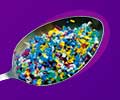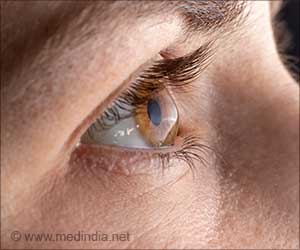Your morning tea may come with an extra ingredient- microplastics! Find out why paper cups aren’t as safe as they seem.
- Paper cups contain a plastic lining that releases microplastics when exposed to hot beverages
- Drinking three cups daily from paper cups can lead to consuming 75,000+ microplastic particles
- Microplastics pose serious health risks, including hormonal imbalances, cancer, and neurological issues
A single paper cup can release 25,000 tiny plastic particles into your tea or coffee in just 15 minutes! Time to switch to reusable cups! #healthalert #medindia’
Drinking Hot Beverages from Paper Cups Increases Microplastic Particles
According to a study conducted by IIT Kharagpur, drinking three cups of tea or coffee every day from paper cups can result in swallowing roughly 75,000 microplastic particles (1✔ ✔Trusted SourceHow safe is your tea in a paper cup?
Go to source). These particles, combined with hazardous compounds such as palladium, chromium, and cadmium, can cause hormonal imbalances, reproductive troubles, cancer, and neurological impairments.
Dr. Sanjeev Wavare, assistant health officer for the Pune Municipal Corporation (PMC), indicated that the problem stems from the materials used to produce disposable cups. Paper cups are lined with polyethylene to prevent leaks, but when exposed to high temperatures, the lining can degrade, releasing microplastics into the beverage. Similarly, when hot drinks are served in plastic or polystyrene cups, they produce hazardous particles.
"Since the onset of the COVID-19 pandemic in Pune, the use of disposable paper cups has significantly increased, and we should revert to our previous, safer alternatives," said Dr. Sanjeev Wavare.
According to the research, the beverage's temperature is crucial in this process. According to research, heated liquids between 85 and 90°C trigger the degradation of plastic linings in as little as 15 minutes, increasing the amount of microplastic discharged.
Microplastics Pose Serious Health Risks
Dr. Sheetal Mahajani, transplant hepatologist and gastroenterologist at Sahyadri Super Speciality Hospital, stated, "The environmental impact of microplastic pollution is significant." Plastics disintegrate slowly in natural environments, resulting in the accumulation of microplastics in both land and aquatic ecosystems. This accumulation affects wildlife habitats and contributes to larger ecological imbalances like ocean pollution."Reference:
- How safe is your tea in a paper cup? - (https://pib.gov.in/PressReleaseIframePage.aspx?PRID=1670373#)
Source-Medindia











